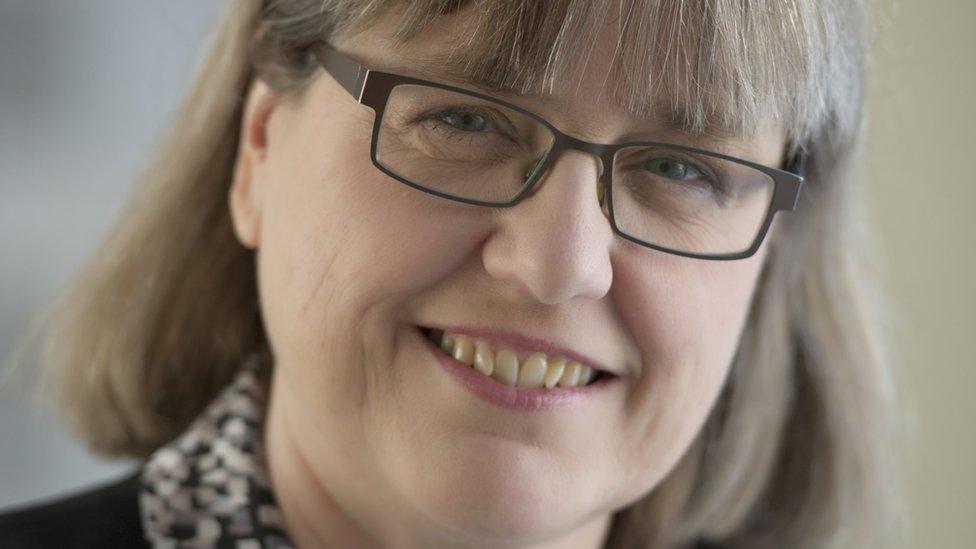Women in science: 'We want to be accepted into the club'
- Published
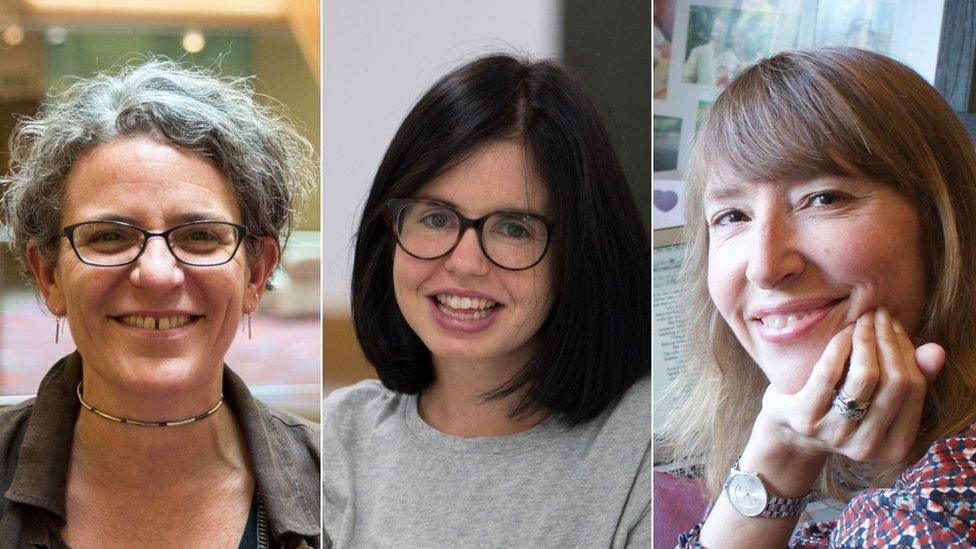
The female winner of the Nobel Prize in Physics has criticised a senior scientist's comments that physics was "invented and built by men" as "silly".
Prof Alessandro Strumia, of Pisa University, told an audience of young, mainly female, physicists that physics was "becoming sexist against men". It didn't go down well.
What do other women in science think?
Dr Jennifer Rohn, 50, a British-American cell biologist at University College London (UCL)
Getting into it: I can't remember a time when I didn't want to become a scientist. I was voted "most likely to become a scientist" in high school. I was unabashedly geeky and read lots of books. I grew up with no role models in science and was not aware of any famous female scientist. I didn't even meet a scientist until I went to university.
What are you working on? I got tired of the abstract and wanted to work on something that would make an impact. I'm now working on a cure for urinary tract infections. It's the most common reason in the UK that an antibiotic is prescribed - and the most common infection in elderly people, yet few studies have been done on it.
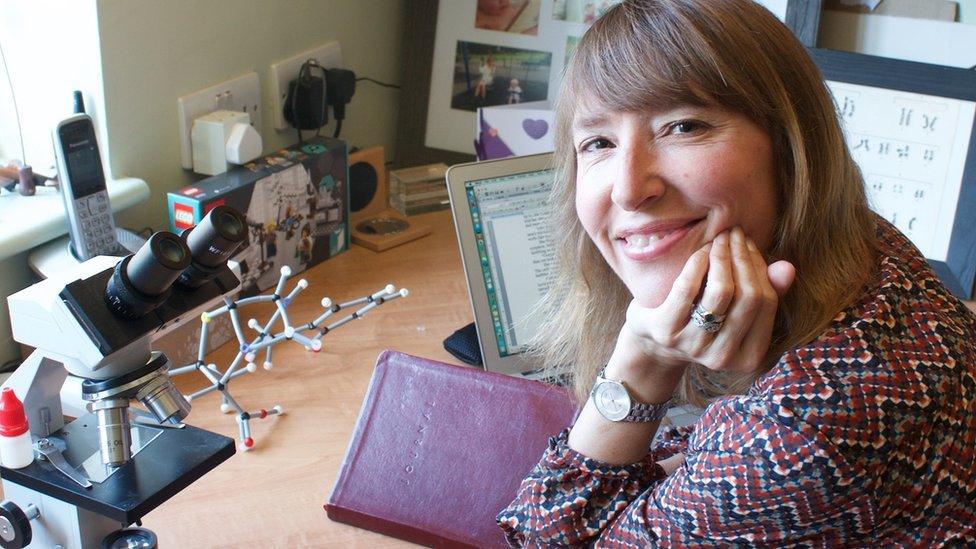
Currently antibiotics can't reach inside the bladder so we are using nano-technology to create little particles of antibiotics that can go inside the bladder wall. We're hoping clinical trials will start late next year, and a cure could be available quite soon afterwards.
Prof Strumia's comments: If you took them at face value, they could be quite demoralising - he is a big-shot professional. Most of what he presented has been debunked and there's been a swift universal rebuttal from the science community of his comments.
Greatest achievement: Managing to cling onto my job. Most women I know were forced to leave. There aren't that many jobs and most go to men.
Memorable moment: An elderly male professor assumed I was the research nurse when he first met me in a lift.
What I've learned: I have been in science for 30 years. I've never seen any evidence that women are not as good as men at science. It's a pervasive view but is simply not true, in my opinion.
Hope for the future: I'm just looking forward to that day when we can be accepted into the club on our own terms. I don't know if that will ever happen.
Allow X content?
This article contains content provided by X. We ask for your permission before anything is loaded, as they may be using cookies and other technologies. You may want to read X’s cookie policy, external and privacy policy, external before accepting. To view this content choose ‘accept and continue’.
Dr Jess Wade, 29, physics postdoc at Imperial College London
Getting into it: I had a really great and supportive physics teacher when I was at school, as well as very supportive parents - though they were both medical doctors and that put me off working in the NHS! They did inspire me though to do something I loved and to always be asking questions.
What are you working on? I work with carbon-based materials for light emitting diodes. Think of the pixels in your TV screen or your mobile phone. We are looking at light, low-cost, high efficiency and flexible displays.
Prof Strumia's comments: They are really damaging to the community. Most of us realise that having diversity, having people who think differently to you, is so important to research. If you only have people who look and think the same, you will never progress.
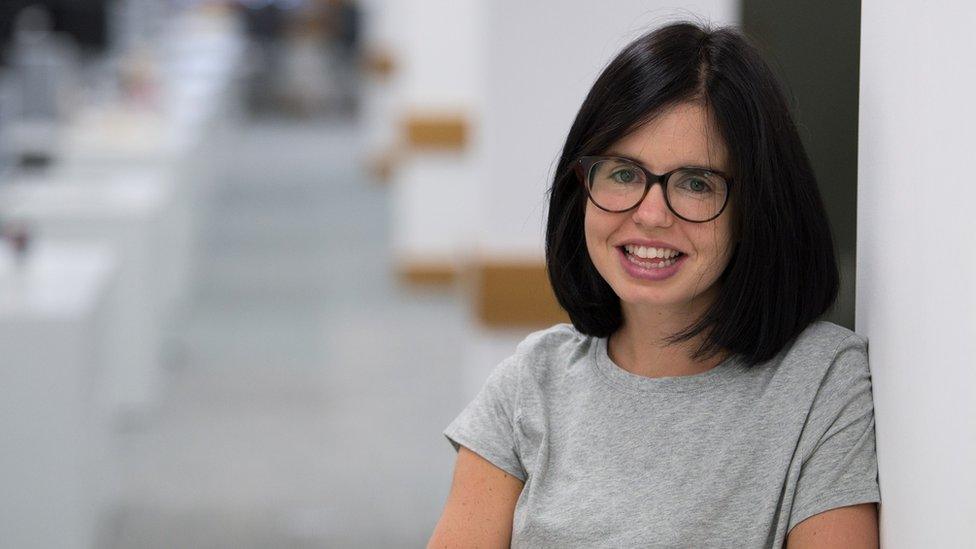
Greatest achievement: For me, it was when I was asked to take part in the International Visitor Leadership Programme in the US. There were 48 people representing different countries, and I represented the UK.
Memorable moment: The thing is that the challenges women face in the field are less overt than a moment. There are biases when you apply for a new job, with peer reviews... and it affects non-Western scientists too. Sometimes we are facing sexism and we don't even know it.
What I've learned: There are challenges, but if we work closely together, we can overcome them.
Hope for the future: That we won't have to be excited about one women getting a Nobel Prize in physics and that it instead becomes a yearly occurrence.
American-born Dr Sylvia McLain, 50, is a biophysicist at the University of Oxford
Getting into it: She spent a long eight years getting a zoology degree as she had to work intermittently cleaning houses, delivering pizzas and working in gas stations to pay for her fees. She became a lab technician but the low pay prompted her to return to her studies, and she got a PhD in chemistry at 36. "I wasn't deeply passionate about science but I was pretty good at it and could earn some decent money."
What are you working on? Research lecturer in the biochemistry department at Oxford University.
Prof Strumia's comments: I think he's weak and feeling threatened. In nature, some oak trees kill off small oak trees so they can grow bigger and stronger.
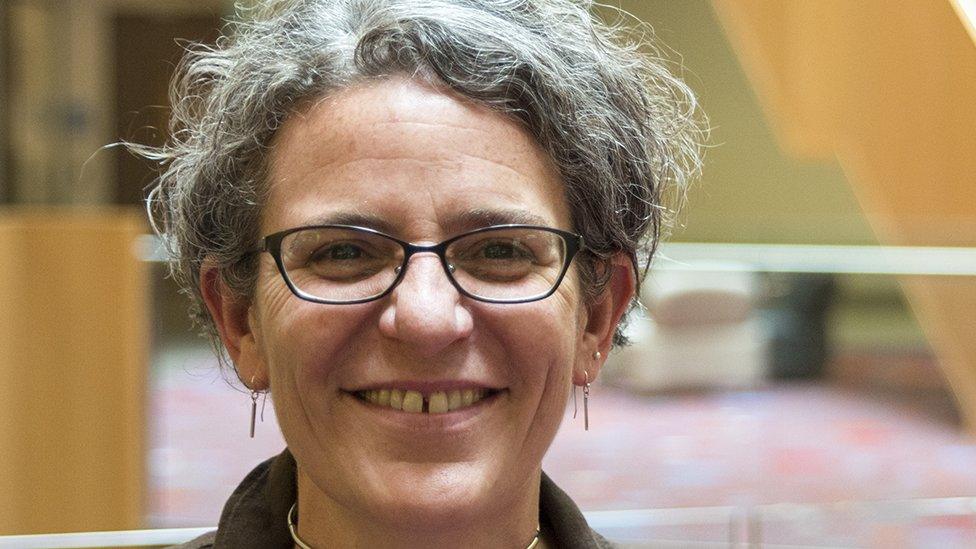
Greatest achievement: Helping my students achieve their goals or giving them the courage to do something else.
Memorable moment: I'm a middle-of-the-road scientist but I always funded my own research. Every single time I got an award, at least one person would tell me: "You only got it because you are a woman." It's, like, thanks!
What I've learned: I used to want to be seen just as a scientist but you are prejudged for being a woman before you even walk through the door. They don't mean to do it.
Hope for the future: It's very important to listen to each other. I hope we get to the place where people take this seriously.
- Published2 October 2018
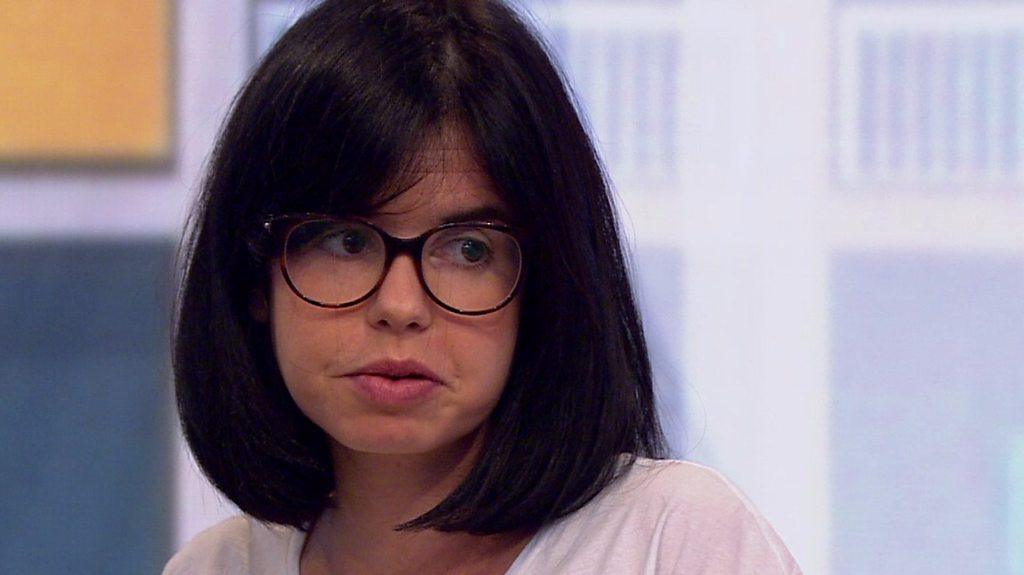
- Published1 October 2018
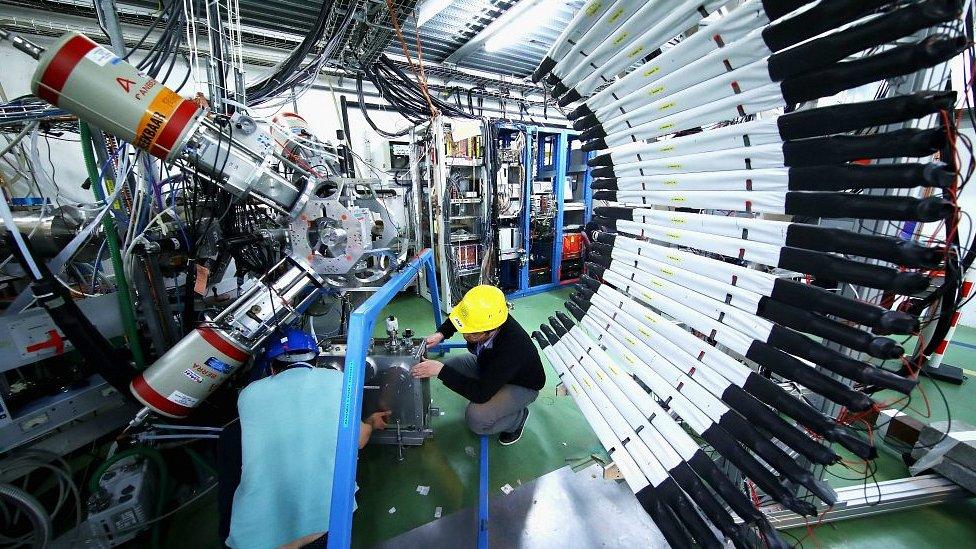
- Published6 November 2017
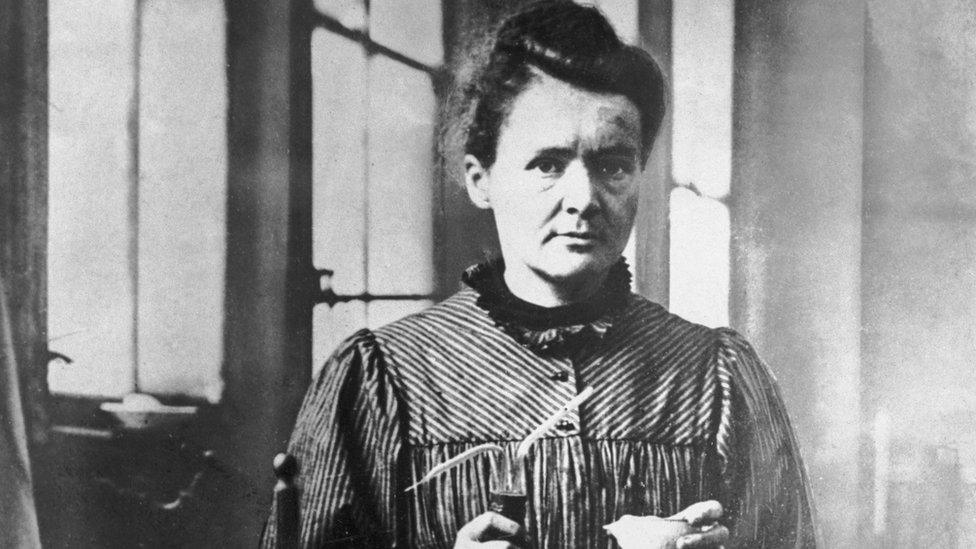
- Published12 June 2015

- Published2 October 2018
